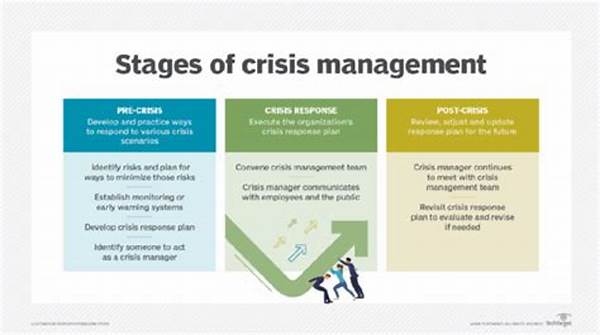The Role of Multinational Crisis Management Teams
In an increasingly globalized world, the complexity and scale of crises that organizations face have expanded considerably. Multinational crisis management teams play a pivotal role in addressing these complexities by facilitating coordinated efforts across borders. These teams consist of professionals possessing diverse expertise and cultural backgrounds, enabling a richer perspective on problem-solving. They are tasked with not only addressing immediate threats but also developing comprehensive strategies to prevent future occurrences. Their capability to operate seamlessly across different legal and regulatory environments is crucial, making them indispensable in the modern corporate landscape. By harmonizing efforts across various branches of an organization, multinational crisis management teams ensure that response strategies are implemented effectively and efficiently.
Benefits of Multinational Crisis Management Teams
1. Diverse Expertise: Multinational crisis management teams consist of members from various backgrounds, enhancing the skill set available for addressing complex issues.
2. Cultural Insight: These teams have a unique advantage in understanding cultural nuances, which is invaluable in global operations.
3. 24/7 Readiness: With team members spread across time zones, multinational crisis management teams provide continuous crisis monitoring and response capabilities.
4. Flexible Strategies: The ability to craft adaptable response strategies is a hallmark of multinational crisis management teams, ensuring responsiveness to diverse scenarios.
5. Regulatory Acumen: These teams navigate intricate legal and regulatory landscapes, ensuring compliance with international and local laws.
Key Challenges for Multinational Crisis Management Teams
Despite their advantages, multinational crisis management teams face several challenges in their operations. Language barriers and differing communication styles among team members can hinder effective coordination. Moreover, the varying regulatory environments across countries require these teams to be well-versed in numerous legal frameworks, complicating compliance efforts. The logistical aspects of time zones can affect response times, requiring strategic scheduling and coordination to ensure real-time operation. Furthermore, technological disparities in communication tools and infrastructure between regions may pose additional challenges. Nevertheless, through rigorous training and the adoption of versatile tools, these teams continually refine their operational strategies to overcome these obstacles. Their ability to adapt to changing circumstances is a testament to their critical role in global crisis management.
Best Practices for Multinational Crisis Management Teams
Enhancing Collaboration within Multinational Crisis Management Teams
For multinational crisis management teams to achieve optimal performance, fostering collaboration is paramount. Strategies to enhance collaboration include embracing diversity and leveraging the different perspectives that each team member brings. Conducting regular team-building exercises strengthens relationships and promotes trust among team members, which is crucial during high-pressure situations. Additionally, the adoption of collaborative technologies, such as cloud-based platforms, enables real-time information sharing and seamless coordination, regardless of geographical location. Encouraging an open exchange of ideas prevents groupthink and stimulates innovative solutions, which are vital in crisis scenarios. Furthermore, appointing leaders with strong interpersonal skills and a track record of managing diverse teams is critical to guiding these collaborative efforts effectively.
Technological Innovations in Multinational Crisis Management Teams
Technology plays a transformative role in the functioning of multinational crisis management teams, equipping them with tools that enhance operational efficiency and effectiveness. Advanced data analytics platforms enable these teams to process and interpret vast amounts of data rapidly, offering insights that inform decision-making processes. The integration of Artificial Intelligence (AI) and Machine Learning (ML) facilitates predictive analysis, assisting in the anticipation and prevention of potential crises. Communication technologies, such as video conferencing and secure messaging apps, enable real-time collaboration despite geographical barriers. Furthermore, utilizing cloud-based storage solutions ensures that all team members have access to up-to-date information, fostering cohesive and coordinated response efforts. These technological innovations are critical in ensuring that multinational crisis management teams can respond proactively and adaptively to emerging threats.
Conclusion: The Imperative of Multinational Crisis Management Teams
In conclusion, the significance of multinational crisis management teams cannot be overstated in today’s interconnected world. Their proficiency in addressing complex cross-border challenges positions them as invaluable assets to organizations operating on a global scale. By fostering collaboration, leveraging technological advancements, and navigating cultural and regulatory complexities, these teams ensure robust and effective crisis management. As organizations continue to expand their international footprint, the role of multinational crisis management teams becomes even more essential, underscoring the need for continuous evolution and adaptation of their strategies. Their ability to provide seamless and coordinated responses underscores their vital role in maintaining organizational resilience and safeguarding global operations in times of crisis.





